The Crucial Role of Parental Involvement in Early Autism Interventions
In home-based Applied Behavior Analysis (ABA) therapy programs, parent training stands out as a vital component that significantly influences the success and sustainability of behavioral interventions. By equipping parents and caregivers with practical skills, ABA programs foster an environment where therapeutic gains are reinforced across all settings—home, school, and community—ensuring that children with autism develop in a consistent, supportive atmosphere. This approach not only boosts developmental progress but also helps build stronger parent-child relationships, reducing stress and empowering families to be active participants in their child’s growth journey.
Understanding the Significance of Parent Training in ABA
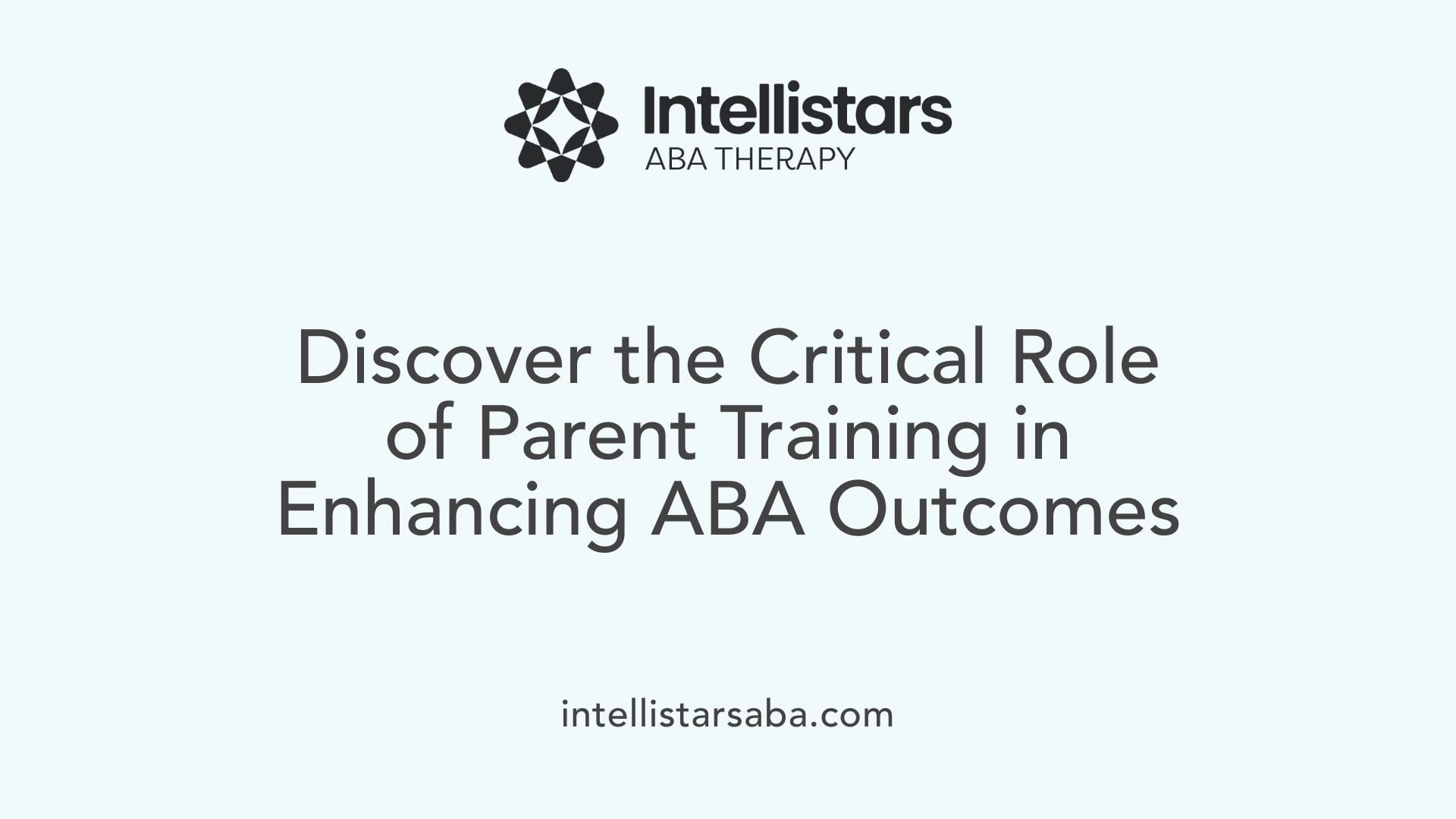
What is the role and importance of parent training in home-based ABA therapy programs?
Parent training in ABA is a fundamental element of effective intervention, especially in home settings. It involves teaching parents and caregivers practical, evidence-based skills that they can apply daily to support their child's developmental progress. These skills include techniques like positive reinforcement, prompting, shaping behaviors, and managing challenging situations.
The main goal is to create a consistent, supportive environment where children can generalize skills learned during therapy to real-life situations. When parents are actively involved, they serve as natural change agents, helping to reinforce behaviors across different settings such as home, school, and community. This ongoing reinforcement helps children develop new skills faster and sustain improvements over time.
In addition to promoting behavioral improvements, parent training reduces parental stress by empowering caregivers with the knowledge and confidence to manage behaviors effectively. It also strengthens parent-child relationships through consistent positive interactions and communication. Overall, parent training maximizes the outcomes of ABA therapy by ensuring that techniques are applied consistently and meaningfully in everyday life, thus making progress more lasting and impactful.
Contributions of Parent Training to ABA Therapy Success
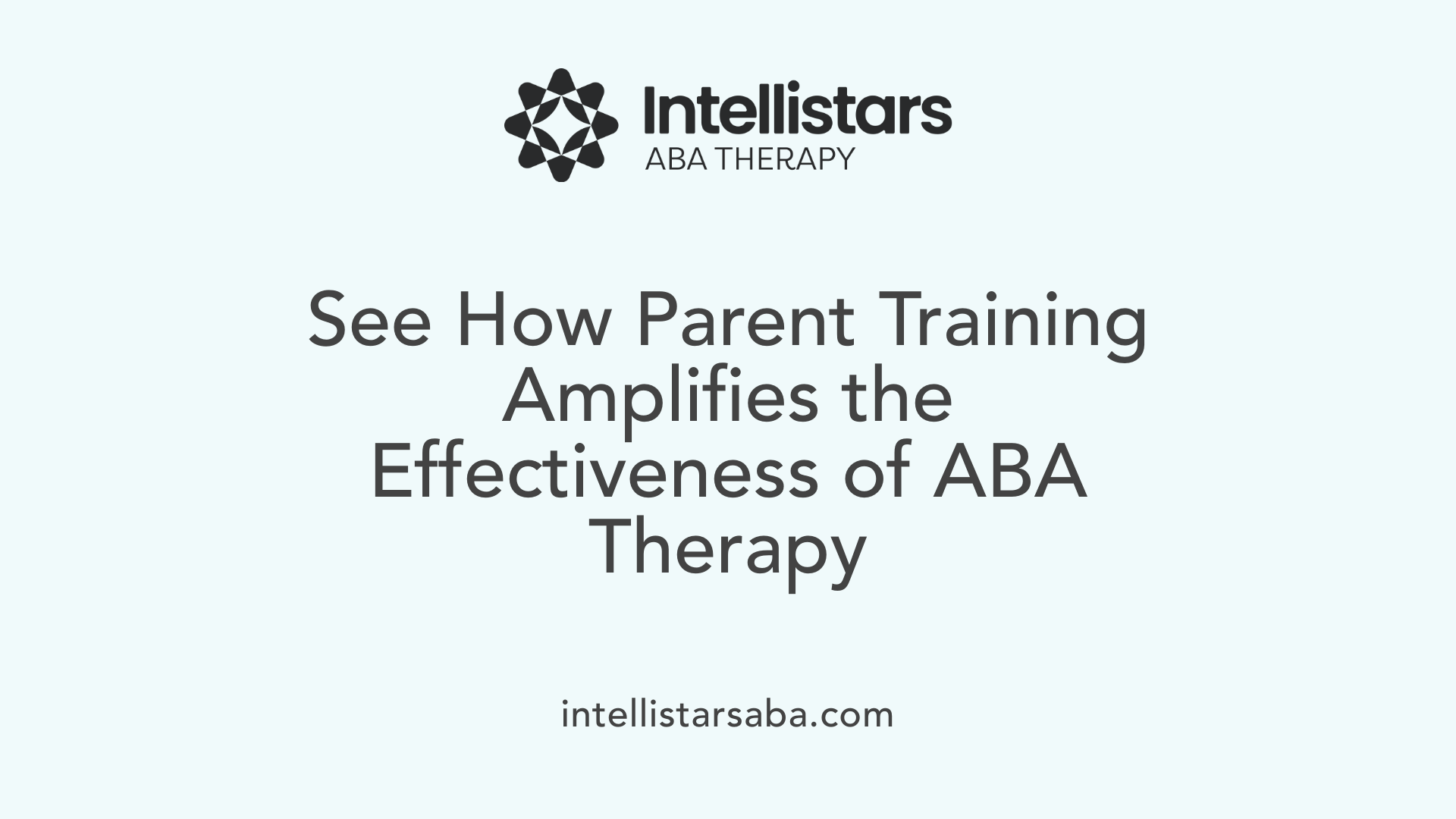
How does parent training contribute to the effectiveness and success of ABA therapy?
Parent training plays a vital role in enhancing the outcomes of ABA therapy by equipping caregivers with practical strategies and techniques that can be applied consistently across different settings. When parents understand core ABA principles like reinforcement, prompting, and behavior shaping, they become active partners in their child's development.
Research shows that with at least 40 hours of dedicated training, parents are capable of achieving notable progress in critical areas such as communication, social interaction, emotional regulation, and executive functioning. This collaboration creates a seamless integration of therapeutic techniques into daily routines like mealtime, play, and community outings. As a result, children benefit from reinforced learning, leading to better skill acquisition and increased generalization across environments.
Active parental involvement also reduces challenging behaviors, as parents are trained to manage crises and implement evidence-based interventions effectively. This not only improves immediate behavior but also prevents skill regression, ensuring sustained improvements over time.
Beyond skill development, parent training helps address access barriers related to the scarcity of qualified professionals and logistical constraints. By empowering parents to carry out ABA strategies confidently at home, therapy becomes more sustainable and accessible.
Furthermore, the close collaboration and communication between parents and professionals foster a trusting relationship, allowing for tailored intervention plans that meet each child's unique needs. Overall, parent training amplifies the effectiveness of ABA therapy, making long-term positive outcomes more achievable for children with autism and developmental disabilities.
Available Resources and Support for Parent Training
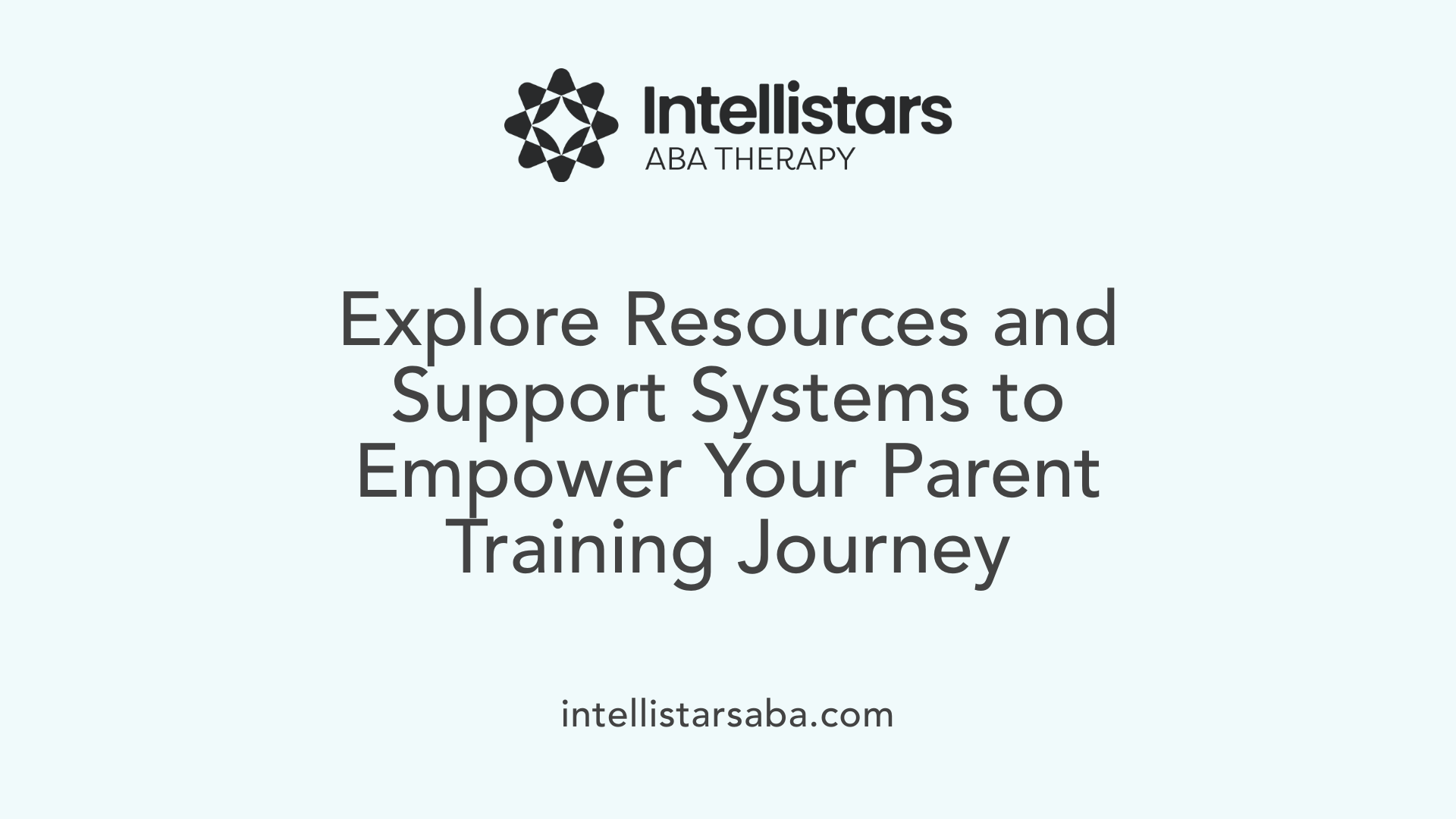
What resources, providers, and support systems are available for parent training in ABA programs?
Parents engaging in ABA for their children can access a diverse range of resources to support their learning and implementation efforts. These resources include workshops, which often involve hands-on activities and practical demonstrations; online modules that offer flexible, self-paced education; and support groups where parents share experiences, advice, and encouragement.
Written materials such as parent guides or manuals are also available, providing structured information on ABA principles, behavior management, and daily routines. These materials are tailored to different developmental levels and individual needs, ensuring relevance and applicability.
The professionals involved in delivering parent training are primarily licensed behavior analysts, commonly known as BCBAs, and trained ABA therapists. These experts offer personalized coaching, conduct seminars, and hold family consultations, helping parents understand and apply ABA strategies effectively. In addition to direct training, some programs incorporate community support systems such as parent groups and peer networks. These platforms foster a sense of shared experience and collective learning, significantly boosting parental confidence and reducing stress.
Support systems may include case managers who coordinate services and connect families to local resources, reinforcing a holistic approach to intervention. The integration of these tools and services ensures that parents are well-supported through ongoing communication, cultural responsiveness, and adaptive learning strategies.
Overall, combining structured educational resources with expert guidance and community support creates a comprehensive framework. This approach aims to empower parents, improve treatment consistency, and facilitate the generalization of skills across various settings, ultimately enhancing outcomes for children with autism.
Benefits of Parental Involvement and Training in ABA
What are the benefits of involving and training parents within ABA treatment?
Having parents trained and actively involved in ABA therapy significantly improves the overall effectiveness of the intervention. When parents understand ABA principles such as reinforcement, prompting, and behavior shaping, they can apply these techniques consistently in daily routines at home and within the community.
This consistency helps children generalize skills across various settings, which is essential for real-world success. For example, a child may learn to share or speak more clearly not only during therapy sessions but also during mealtime or playtime with family members.
Moreover, parental training boosts confidence. Parents learn how to identify behaviors, implement evidence-based interventions, and manage crises calmly and effectively. This empowerment reduces parental stress and fosters a positive, collaborative environment.
Enhanced family bonds are another key outcome. When parents are equipped with the right knowledge and skills, they feel more engaged and capable, leading to stronger relationships with their children. Regular coaching and support foster ongoing motivation and enable parents to adapt strategies as their child's needs evolve.
Research supports these advantages. A study involving 22 parents in Northern Ireland found that trained parents felt more empowered and satisfied with their child's progress. The more engaged and confident parents are, the better the child’s developmental outcomes, making parental involvement an essential component of successful ABA therapy.
A Holistic and Collaborative Approach in ABA
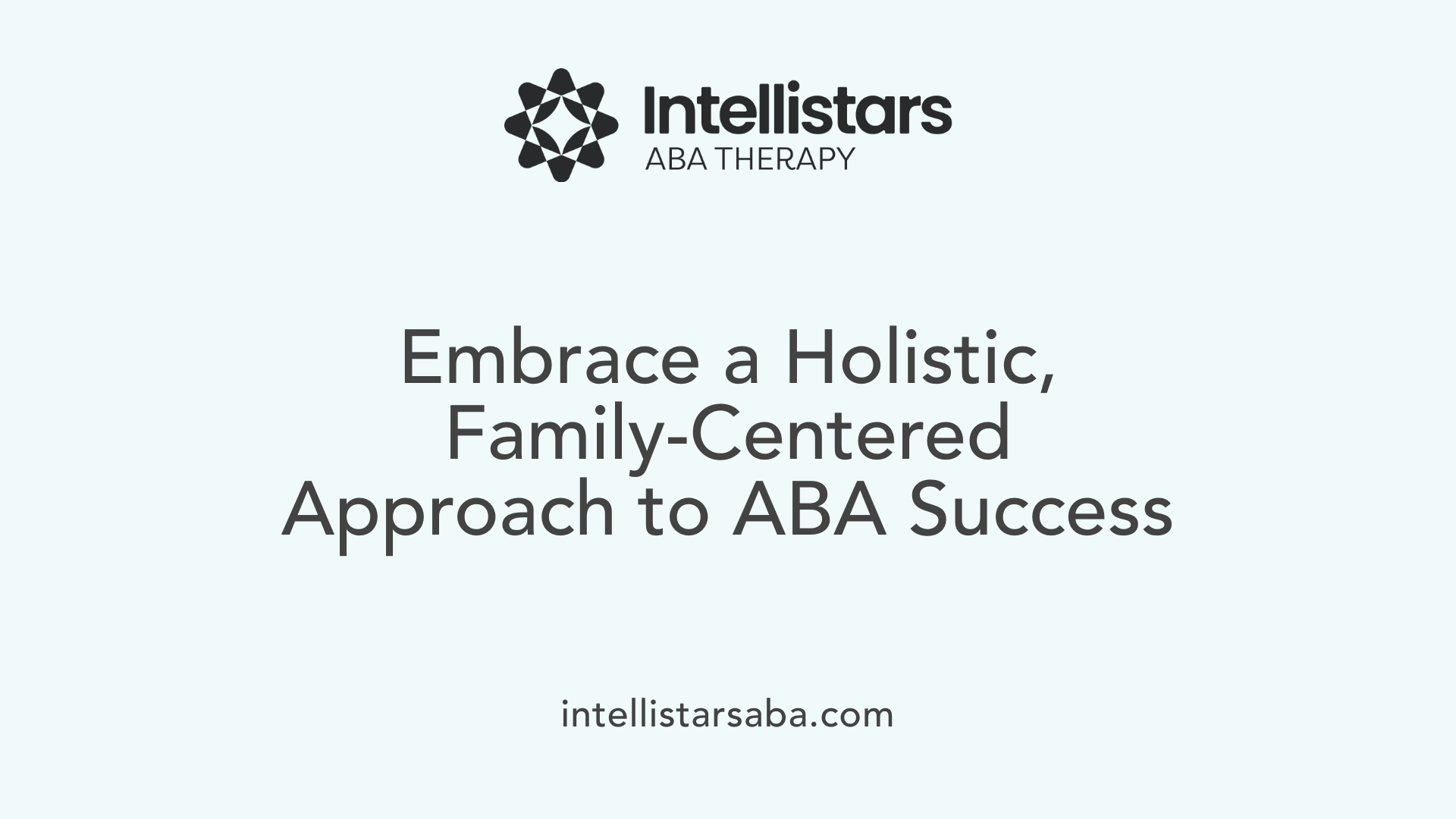
Why is involving parents in ABA therapy considered a holistic and collaborative approach?
Involving parents in ABA therapy is more than just a support mechanism; it is a comprehensive strategy that deeply integrates the family's values, routines, and cultural contexts into the intervention process. This partnership ensures that therapy is personalized, relevant, and consistent.
Parent participation fosters a relationship built on trust and open communication. When parents are actively involved, they understand their child's needs better and can reinforce strategies learned during therapy sessions in everyday environments like home, school, and community.
Effective training equips parents with practical skills, such as reinforcement and behavior shaping, which they can implement confidently. These techniques support skill generalization and behavior maintenance outside of clinical settings.
Moreover, this collaborative approach reduces parental stress and empowers caregivers, strengthening the bond between parent and child. It creates a supportive ecosystem where therapy goals are aligned with family routines and cultural values, making interventions more sustainable.
Ultimately, engaging parents as active partners in ABA treatment offers a unified framework that enhances therapeutic outcomes and nurtures overall emotional well-being for the child.
Key Components of Effective Parent Training in ABA
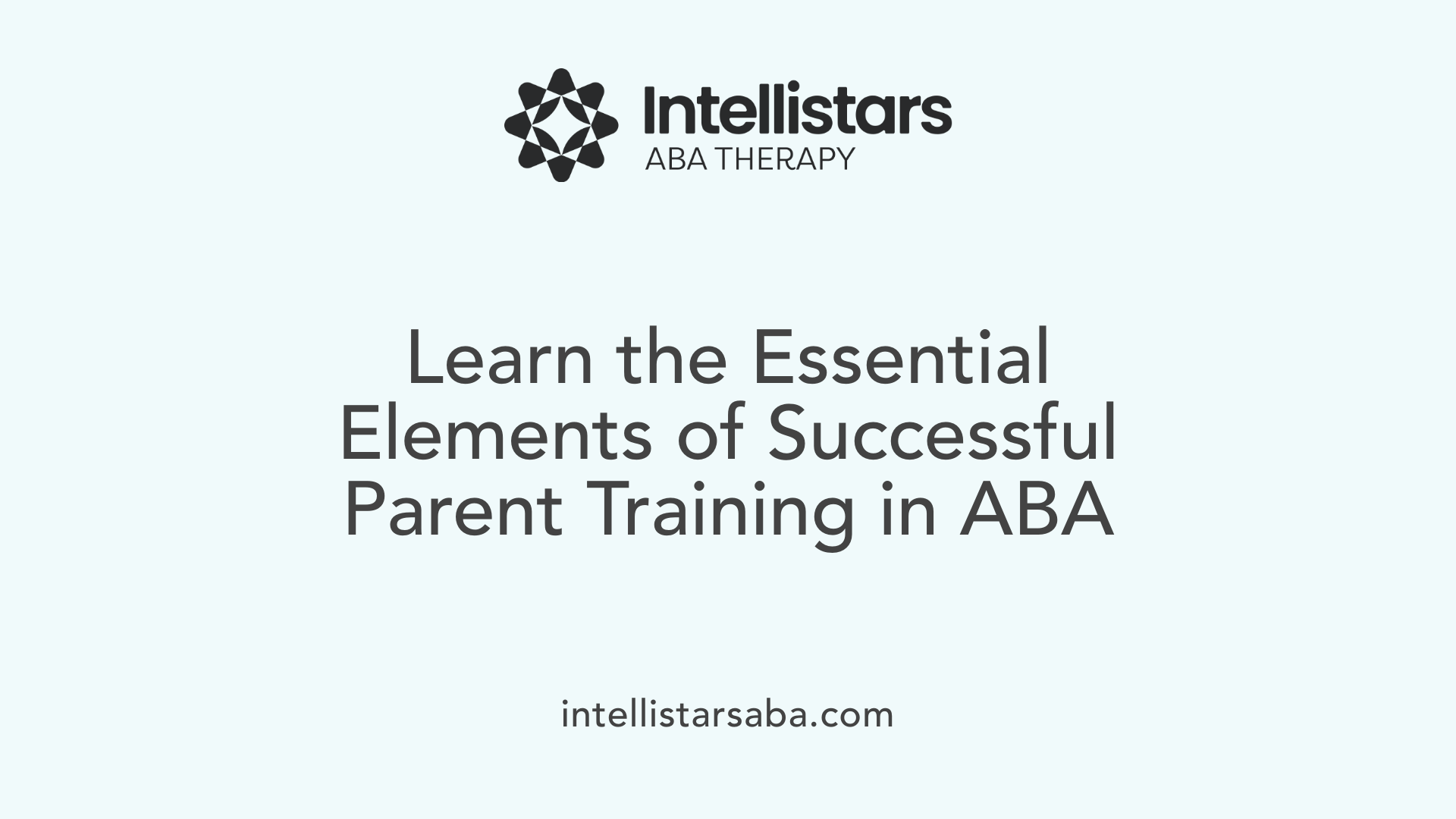
What are the key components of effective parent training in ABA therapy?
Effective parent training in ABA focuses on several essential elements that equip caregivers with the skills necessary to support their child's development. First, it involves thorough education on autism spectrum disorder (ASD) and the fundamental principles of applied behavior analysis (ABA). This foundation helps parents understand why certain strategies are used and how behaviors can be shaped.
Next, hands-on intervention techniques play a crucial role. Parents are taught specific strategies such as positive reinforcement—to encourage desirable behaviors—and discrete trial training (DTT), which breaks skills into manageable steps. Techniques like the Picture Exchange Communication System (PECS) are also employed to enhance communication.
Training incorporates active, practical methods like modeling behaviors, role-playing, and providing feedback. Many programs follow the Behavior Skills Training (BST) model, which combines instruction, modeling, rehearsal, and feedback to ensure parents can accurately implement techniques.
Ongoing support and coaching from professionals such as Board Certified Behavior Analysts (BCBAs) allow parents to refine their skills, troubleshoot challenges, and adjust strategies as needed. Collaboration with therapists fosters consistency across home and other settings, reinforcing skill generalization.
This comprehensive approach helps parents build confidence, ensures interventions are carried out correctly, and promotes long-lasting behavioral improvements for the child. When parents are well-trained, they become active partners in their child's growth, leading to more effective and sustainable outcomes in ABA therapy.
Strategies and Methods for Home-Based Parent Training
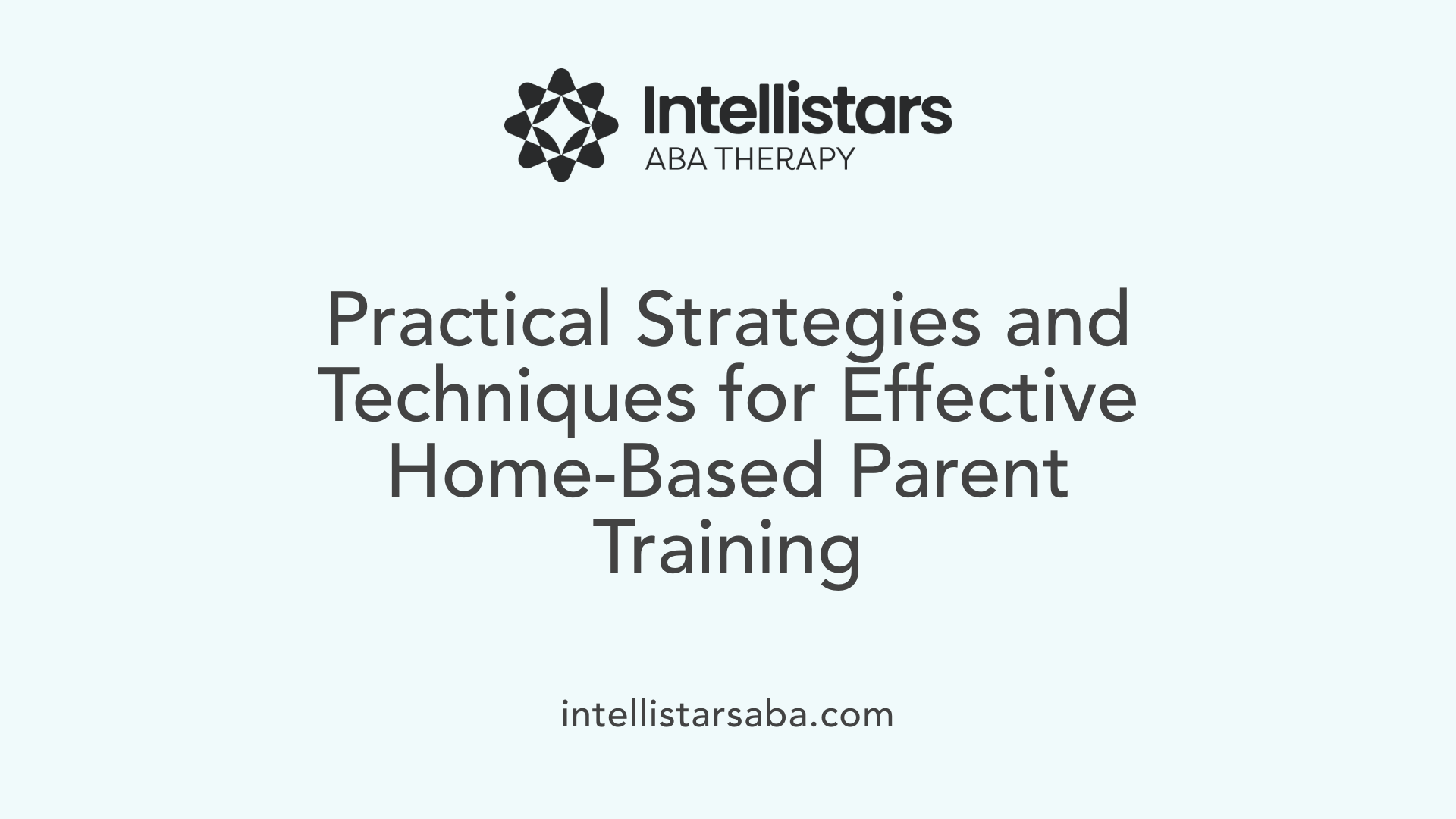
Instruction on ABA principles and practical strategies
Effective parent training begins with teaching parents fundamental ABA concepts such as reinforcement, prompting, shaping, and generalization. Parents learn how to identify appropriate reinforcement, like praise or tokens, to encourage desired behaviors. They are also guided on how to use visual supports, such as schedules or cue cards, to help children transition smoothly through daily routines.
Practical strategies include implementing positive reinforcement consistently during activities like mealtime, play, and bedtime. For example, praising a child when they make eye contact or complete a task helps solidify these skills. Managing behaviors calmly and proactively is also emphasized to prevent escalation.
Hands-on coaching, modeling, feedback
Real-life application is crucial in parent training. Practitioners often use hands-on coaching, where they demonstrate techniques during live interactions or through role-playing exercises. Modeling the correct use of reinforcement or prompting helps parents see effective methods in action.
Feedback sessions allow parents to practice skills, receive constructive feedback, and refine their approach. Regular supervision and follow-up visits ensure that parents gain confidence and maintain fidelity to ABA strategies. This interactive process improves skill acquisition and transfer into daily routines.
Tailoring training to family needs and barriers
Recognizing that each family is unique, professionals collaborate with parents to customize training plans. They consider cultural values, family dynamics, time constraints, and stress levels. Addressing barriers such as limited time or resources involves creating manageable steps and integrating ABA strategies into existing routines.
Personalized plans include setting realistic goals, providing flexible scheduling, and offering resources like online courses or workshops. Ongoing communication allows therapists to adjust strategies as needed, ensuring that parents feel supported and capable.
Overall, combining clear instruction, practical demonstrations, personalized support, and consistent feedback creates a solid foundation for effective home-based parent training. This approach empowers parents to implement ABA techniques confidently, leading to more consistent and meaningful developmental progress for children with autism.
Impact of Parent Training on Child Development and Behavior
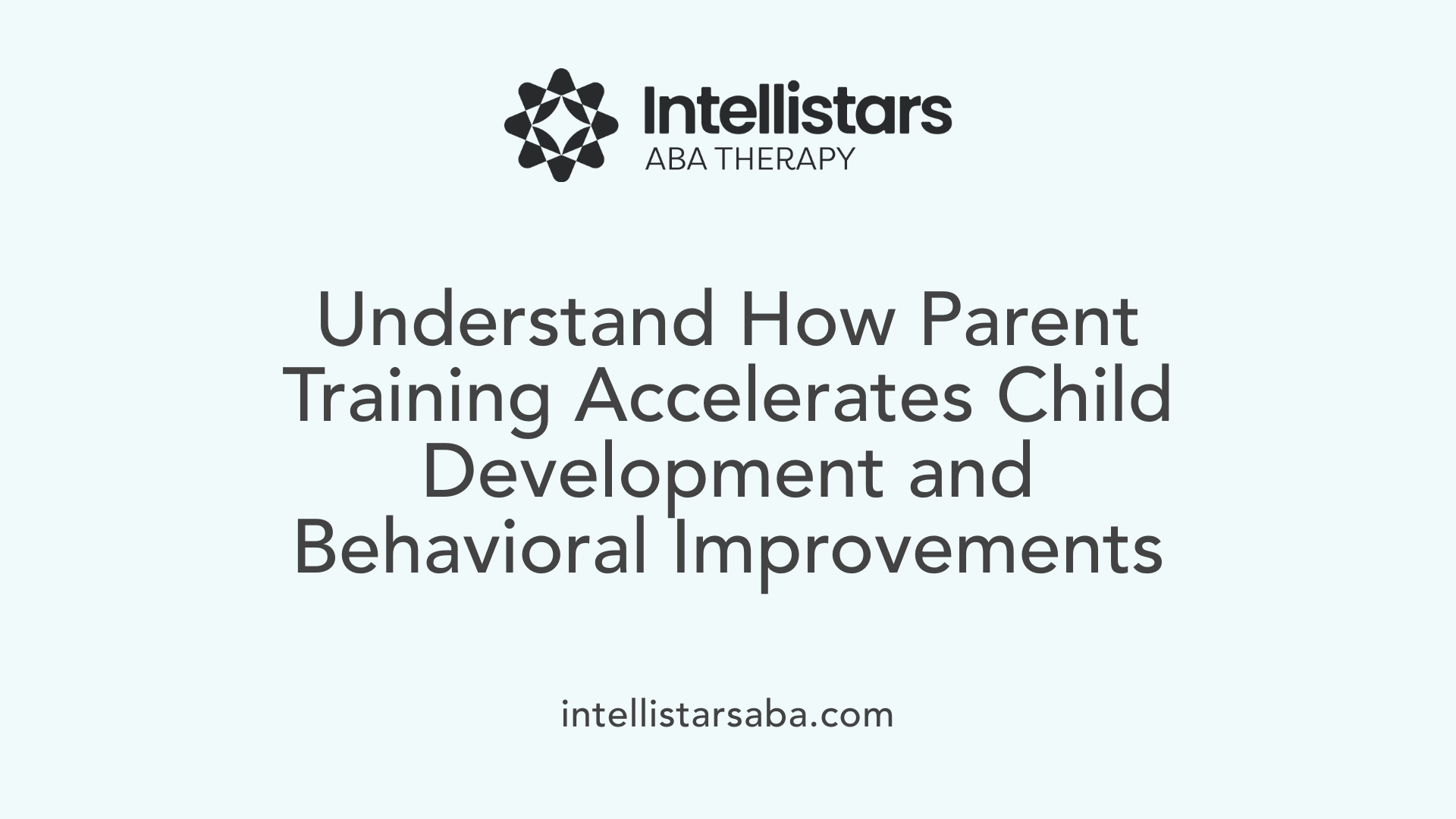
How does parent training impact behavior management, skill reinforcement, and developmental progress in children receiving ABA?
Parent training in Applied Behavior Analysis (ABA) plays a vital role in improving how children manage their behaviors and develop new skills. When parents are equipped with practical strategies like reinforcement, prompting, and shaping, they can effectively address challenging behaviors and promote positive ones consistently at home and in other environments.
A major benefit is increased consistency. Training helps parents understand how to apply ABA principles across different settings, which reinforces learning and helps skills generalize beyond therapy sessions. For example, parents learn to reinforce communication efforts or social interactions, encouraging children to repeat these behaviors in daily routines such as mealtime or play.
Moreover, parent involvement accelerates developmental progress. As parents become active participants, they can identify behaviors needing attention, track progress with tools like charts or logs, and adjust strategies accordingly. This ongoing collaboration boosts the child's ability to acquire critical skills such as language, social interaction, and emotional regulation.
Reducing parental stress and enhancing family dynamics are additional benefits. Parent training provides caregivers with understanding and practical tools, making them feel more confident and less overwhelmed. Empirical evidence supports that when parents are involved, children tend to make faster and more sustained progress.
Techniques such as visual supports and structured routines, along with professional guidance from BCBAs or trained therapists, further improve intervention effectiveness. Overall, parent training creates a sustainable, supportive environment that fosters lifelong development and strengthens the parent-child bond.
Fostering Long-Term Growth Through Parental Engagement
Ultimately, parent training within home-based ABA programs fosters a collaborative, holistic approach that empowers families to sustain and extend therapeutic gains. By enhancing parents' skills, confidence, and understanding, these programs create a nurturing environment where children can develop essential skills, gain independence, and thrive across all aspects of life. As the cornerstone of effective autism intervention, parent training not only optimizes immediate treatment outcomes but also lays the foundation for lifelong growth, resilience, and family cohesion.
References
- The Role of Parent Training in ABA /Aim Higher ABA
- Parent Training in Autism Spectrum Disorder: What's in a Name?
- Parent Training as a Medical Necessity in ABA Therapy
- The Crucial Role of Parent Training in ABA: Unlocking Success ...
- Can parents do ABA at home? — Association for ABA Parent Training
- Mastering Parent Training in ABA: A Comprehensive Guide
- How to Encourage Parental Involvement and Boost the Success of ...
- Combining ABA Therapy With Parent Training Programs
- Parent Training and Support in ABA Therapy for Children with Autism






